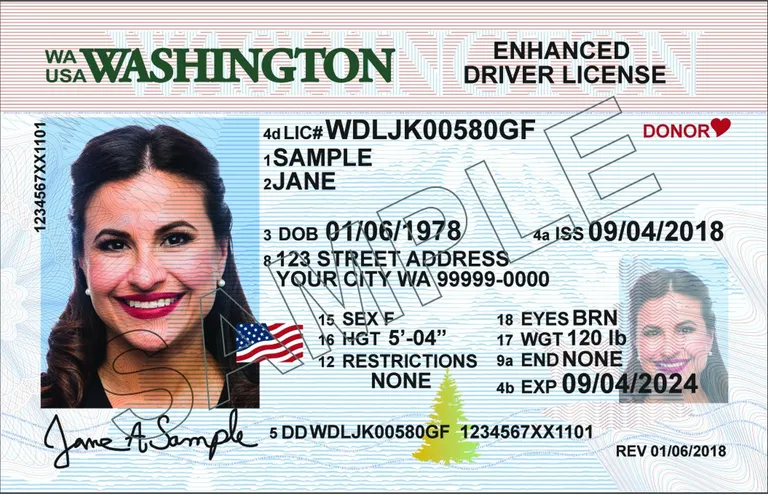Washington
ID Scanning Laws
In Washington, the law does not regulate a business’s practice of scanning IDs or retaining information obtained from a scan. This means that, subject to applicable privacy laws, a business is likely allowed to scan IDs and retain information obtained from a scan.
However, there are some instances where merchants are required to record information related to identity. For example, businesses involved in scrap metal recycling and vehicle rentals are required to keep records of certain information. In these scenarios, ID scanning can improve the ease and accuracy of record keeping.




Washington State Legislature
ID Scanning Resources
The Legal Framework
Washington ID Scanning Laws and Regulations
The laws and regulations surrounding ID scanning in Washington are not as straightforward as in some other states. While there is no specific law that directly regulates the practice of scanning IDs, there are several instances where businesses are required to record information related to identity, such as scrap metal recycling and vehicle rentals. In these scenarios, ID scanning can improve the ease and accuracy of record keeping. However, businesses must be mindful of applicable privacy laws when retaining information obtained from a scan.
Relevant Laws and Regulations
Several laws and regulations in Washington may impact the practice of ID scanning. Here are a few key ones:
Washington RCW 66.44.310: Minors Frequenting Off-Limits Area—Misrepresentation of Age
This law makes it a misdemeanor to serve or allow a person under the age of 21 to remain in an area classified by the Washington State Liquor Control Board as off-limits. It also makes it a misdemeanor for a person under the age of 21 to represent their age as being 21 or more for the purpose of purchasing liquor or securing admission to, or remaining in, an off-limits area.
Washington RCW 46.20.220: Vehicle Rentals – Records
This law requires every person renting a motor vehicle to another person to keep a record of the vehicle license number, the name and address of the person to whom the vehicle is rented, the number of the vehicle driver’s license of the person renting the vehicle, and the date and place when and where such vehicle driver’s license was issued. This record is open to inspection by any police officer or anyone acting for the director.
Washington HB 1623: Concerning Secondhand Dealers Utilizing Automated Kiosks to Purchase Secondhand Electronic Devices
This law stipulates that property bought by any secondhand dealer through the use of an automated kiosk must be held for at least thirty days after the secondhand property was accepted by the automated kiosk.
Washington House Bill 1616: Creating a Charter of People’s Personal Data Rights
This bill establishes a charter of personal data rights for individuals residing in Washington state. These rights include the right to know what personal information a covered entity processes about the individual, the right to access and obtain the individual’s personal information processed by a covered entity in a machine-readable format, the right to refuse consent for any processing of the individual’s captured personal information that is not essential to the primary transaction, the right to correct inaccurate personal information, the right to require a covered entity and/or data processor to delete all captured information, unless the entity capturing the information is otherwise instructed by law, and the right not to be subject to surreptitious surveillance.
ID Scanning in Hotels
For hotels in Washington, the practice of ID scanning can be a useful tool for verifying the identity and age of guests, particularly when it comes to alcohol sales. However, it’s important to remember that while there is no specific law in Washington that regulates the scanning of IDs, hotels must still comply with privacy laws when retaining information obtained from a scan.
For instance, if a hotel operates a bar or restaurant that serves alcohol, it must comply with Washington RCW 66.44.310, which makes it a misdemeanor to serve alcohol to a person under the age of 21 or allow such a person to remain in an area classified as off-limits by the Washington State Liquor Control Board. In this case, scanning a guest’s ID can help the hotel verify the guest’s age and ensure compliance with this law.
Similarly, if a hotel offers vehicle rental services, it must comply with Washington RCW 46.20.220, which requires the hotel to keep a record of certain information related to the rental. Again, scanning a guest’s ID can help the hotel accurately record this information.
However, when scanning IDs and retaining information obtained from a scan, hotels must also be mindful of the rights established by Washington House Bill 1616. This bill gives individuals the right to know what personal information a covered entity (like a hotel) processes about them, the right to access and obtain their personal information in a machine-readable format, the right to correct inaccurate personal information, and the right to require the deletion of all captured information, among other rights.
Please note that this information is intended to provide a general overview and does not constitute legal advice. Always consult with a legal professional for advice specific to your situation
Washington Anti-Trafficking Network
Our Fight Against Human Trafficking



Knowledge Base
Frequently Asked Questions
Yes, hotels in Washington can scan IDs. However, they must comply with applicable privacy laws when retaining information obtained from a scan.
No, there is no law in Washington that specifically requires hotels to scan IDs. However, ID scanning can help hotels verify the identity and age of guests, which can be particularly useful when it comes to alcohol sales or vehicle rentals.
Yes, hotels in Washington can retain information obtained from a scan, subject to applicable privacy laws.
While there is no specific law in Washington that directly regulates the practice of scanning IDs, several laws may impact this practice, including Washington RCW 66.44.310, Washington RCW 46.20.220, Washington HB 1623, and Washington House Bill 1616.
Washington House Bill 1616 establishes a charter of personal data rights for individuals residing in Washington state. These rights include the right to know what personal information a covered entity processes about the individual, the right to access and obtain their personal information in a machine-readable format, the right to correct inaccurate personal information, and the right to require the deletion of all captured information, among other rights.
When scanning IDs, hotels in Washington should consider the purpose of the scan, the information they intend to retain, and how they will comply with applicable privacy laws. They should also consider the rights of individuals under Washington House Bill 1616.
